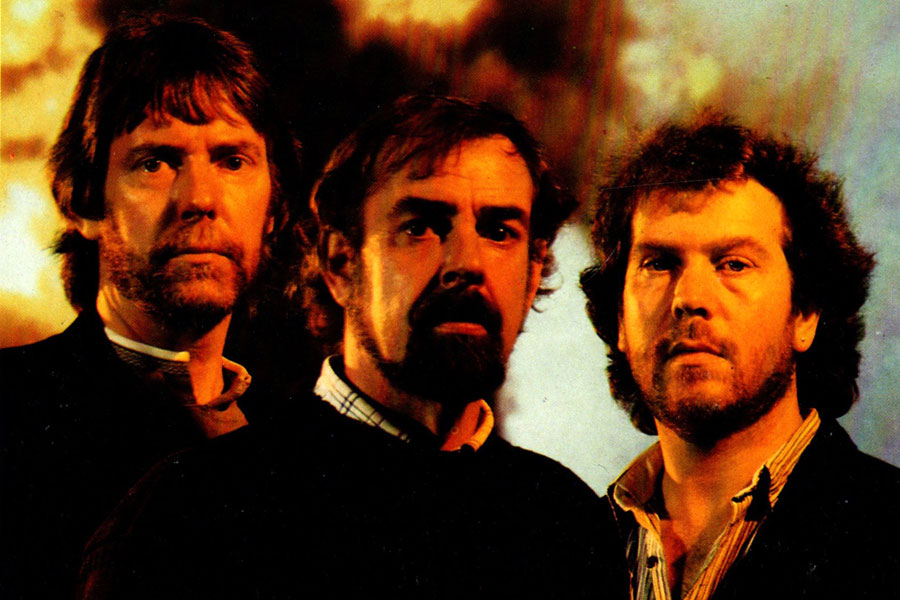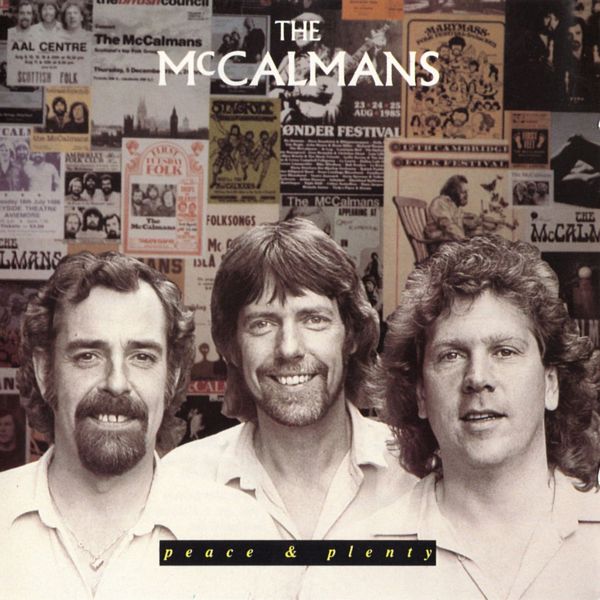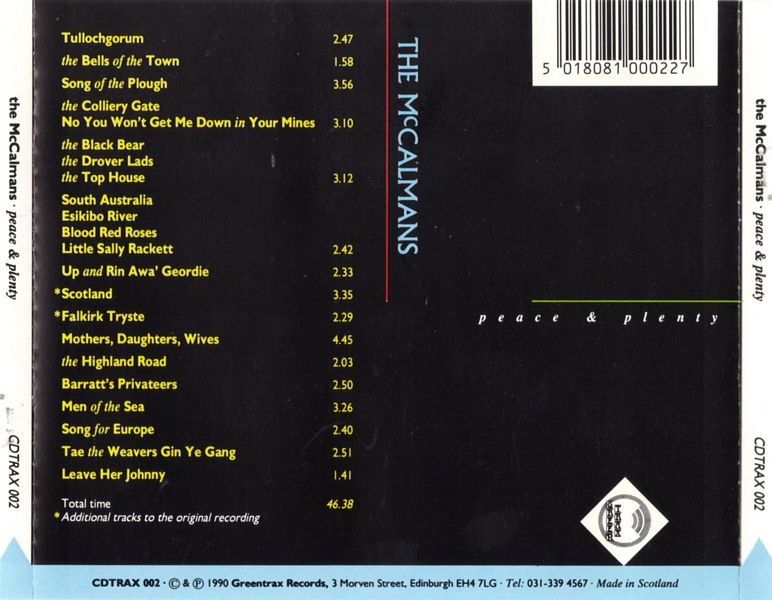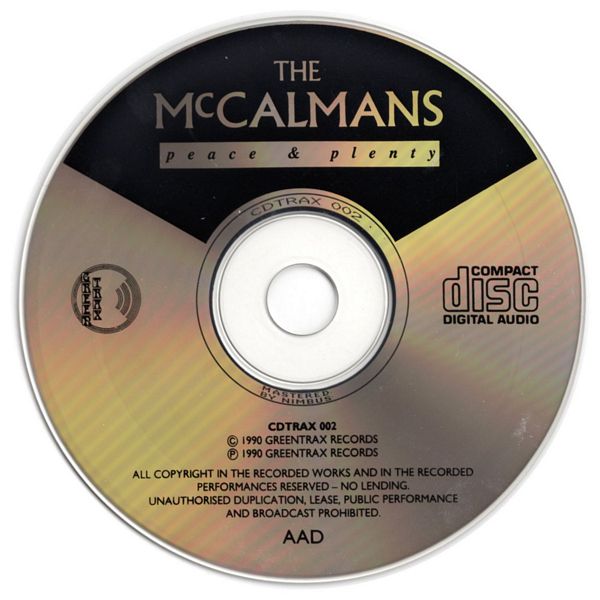

 |

 |

 |
Sleeve Notes
Their music apart, the most admirable aspect of The McCalmans is their refusal to lose touch with their folk music roots. Despite a heavy international schedule of concerts, clubs, radio, TV and recording, they faithfully return home each year to play local venues. (Linlithgow Folk Club is one such venue — it was that club which gave the group their first break back in the mid- sixties and 'The Macs' have never forgotten).
The Macs are ever ready to support new ventures. They were, for example, among the first to help get the Edinburgh Folk Festival off the ground.
In 1986 The Macs added their considerable music muscle to the fledgling label, Greentrax records, which I set up mainly to showcase unsung — or at least unrecorded — Scottish talent. I am greatly indebted to The Macs for their faith in me and they have since gone on to record two further albums for the label — Listen to the Heat and Flames on the Water.
Ian D. Green
Footnote: This album completes something of a full circle for The Macs. It was recorded at Craighall Studio, Edinburgh, where the group cut their first LP way back in 1968.
Tullochgorum — based on the tune The Reel of Tullochgorum. The text of this song was reputedly written by the Rev. John Skinner about the intervention of a lady in a political dispute.
Lead Vocal: Ian
The Bells of the Town — early one Sunday morning we were sailing back from the Isle of Man when the bells of Liverpool's churches began to peal out over the deserted sunlit streets. Nick wrote this song a couple of months later.
Lead Vocal: Derek
Song of the Plough — in the North-East of Scotland there are still meetings where ploughmen and their teams of matched Clydesdales compete to produce the straightest furrow. The competition at Jericho, just outside Forfar, inspired this song.
Lead Vocal: Nick
The Colliery Gate & No You Won't Get Me Down in Your Mines — two songs on the hardships of mining. The first written by Ian and the second from the singing of Peter Unwin and Bert Haasjes.
Lead Vocals: Ian & Derek
The Black Bear, The Drover Lads & The Top House — three tunes played by Nick.
South Australia, Esikibo River, Blood Red Roses & Little Sally Rackett — songs from the definitive shanty collection of Stan Hughill.
Lead Vocals: Ian & Derek
Up and Rin Awa' Geordie — the text was written by the Ettrick Shepherd, James Hogg, with all the venom being directed at George I.
Lead Vocal: Ian
Scotland — in 1983 we were asked to put together a programme illustrating the history of Scotland, via folk song, for a tour of schools in New Zealand. During the research into this project we were reminded of the constant manipulation of the Scots for reasons of power, religion and money. Although England usually gets the blame, it must be said that in many of the power struggles, treachery and greed stemmed from within.
Lead Vocal: Ian
Falkirk Tryste — Trystes or Trysting Fairs were in the major cattle markets of ancient Scotland and the animals were driven over great distances to reach
them. This song follows the progress of one drove on its way from Benbecula via North Uist and Skye to Falkirk in Central Scotland.
Lead Vocals: Ian & Derek
Mothers, Daughters, Wives — written by Judy Small. We met Judy in a club in Sydney where she sang this song which challenges the traditional role of women in times of war AND peace.
Lead Vocal: Nick
The Highland Road — based on the poem October Running by Hilton Brown and used as a theme song for one of The McCalmans TV series.
Lead Vocal: Ian
Barratt's Privateers — the late Stan Rogers from Canada wrote this song of a disillusioned adventurer.
Lead Vocal: Ian & Derek
Men of the Sea — John Connolly and Bill Meek were part of one of our favourite groups The Broadside. This is their classic song about the life of a trawlerman.
Lead Vocal: Derek
Song for Europe — this song is so bad, it could just qualify for the finals of the Eurovision Song Contest. (Grande Bretagne — Nul Points!).
Lead Vocal: Ian
Tae the Weavers Gin Ye Gang — the moral is — don't talk to strange weavers.
Lead Vocal: Derek
Leave Her Johnny — a farewell shanty.
Lead Vocal: Ian